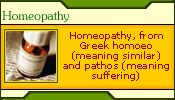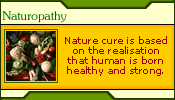|
The human body needs calcium more than any other mineral. A man
weighing 70 kg. contains one kg. of calcium. About 99 per cent of
the quantity in the body is used for building strong bonesand teeth
and the remaining one per cent is used by the blood, muscles and
nerves.
Calcium performs many important functions. Without this mineral
, the contractions of the heart would be faulty, the muscles would
not contract properly to make the limbs move and blood would not
clot. Calcium stimulates enzymes in the digestive process and coordinates
the functions of all other minerals in the body. Calcium is found
in milk and milk products, whole wheat, leafy vegetables such as
lettuce, spinach, and cabbage , carrots, watercress, oranges, lemons,
almonds, figs and walnuts. A daily intake of about 0.4 to 0.6 grams
of calcium is considered desirable for an adult. The requirement
is larger for growing children and pregnant and lactating women.
Deficiency may cause porous and fragile bones, tooth decay, heart
palpitations, muscle cramps, insomnia and irritability.
A large increase in the dietary supply of calcium is needed in
tetany and when the bones are decalcified due to poor calcium absorption,
as in rickets, oesteomalacia and the malabsorption syndrome. Liberal
quantity of calcium is also necessary when excessive calcium has
been lost from the body as in hyperparathyroidism or chronic renal
disease.
Calcium is needed for so many different functions in the body,
from bones, to blood clotting, your muscles etc. People often think
of bones as a static piece of the body, where very little change
occurs, but that is a totally incorrect perception. Bone is a dynamic
part of the body and calcium is constantly flowing into, and out
of it.
Calcium is required for
Calcium is needed for the formation and maintenance of bones, the
development of teeth and healthy gums. It is necessary for blood
clotting, stabilizes many body functions and is thought to assist
in bowel cancer.
It has a natural calming and tranquilizing effect and is necessary
for maintaining a regular heartbeat and the transmission of nerve
impulses. It helps with lowering cholesterol, muscular growth, the
prevention of muscle cramps and normal blood clotting.
Furthermore it also helps with protein structuring in DNA and RNA.
It provides energy, breaks down fats, maintains proper cell membrane
permeability, aids in neuromuscular activity and helps to keep the
skin healthy. Calcium also stops lead from being absorbed into bone.
Deficiency of calcium
Prolonged bone re-absorption from chronic dietary deficiency results
in osteoporosis - from either too little bone mass accumulation
during growth or higher rate of bone loss at menopause. Dietary
calcium deficiency also has been associated with increased risk
of hypertension, and colon cancer.
When it is in short supply, a variety of symptoms from aching joints,
eczema, elevated blood cholesterol, heart palpitations, brittle
nails, hypertension (high blood pressure) and insomnia can become
evident.
Muscle cramps, nervousness, numbness in the arms and legs, rheumatoid
arthritis, convulsions, depression and delusions have also been
noted.
Dosage
The dosage underneath is the Recommended Daily Allowance (RDA),
but be aware that this dosage is the minimum that you require per
day, to ward off serious deficiency of this particular nutrient.
In the therapeutic use of this nutrient, the dosage is usually increased
considerably, but the toxicity level must be kept in mind.
1,000 mg per day for people aged 19-50 years 1,200 mg per day for
people over the age of 51 years.
The maximum level of calcium is 2.5 g/day. It is also recommended
one to two parts of calcium and phosphorus to one part of magnesium.
Toxicity and symptoms of high intake
Excess calcium supplementation has been associated with some mineral
imbalances such as zinc, but combined with a magnesium deficiency
it may cause deposits to form in your kidneys, which could cause
kidney stones.
Best used with
It is recommended to take one to two parts of calcium and phosphorus
to one part of magnesium. Vitamin D and vitamin A are beneficial
to have around this nutrient and it is great when taking a supplement
that it is chelated with amino acids.
When more may be required
More calcium may be needed if you suffer from osteoporosis, are
lacking in Vitamin D, if you have a gum disease or eat processed
foods, ingest excess protein, fat, sugar or caffeine, salt or fizzy
soda drinks.
Drinking bottled water with a low mineral content could require
more dietary calcium and so may the consumption of alcohol, taking
a birth control pill, diuretic (water pill) antacids or if you are
on hormone replacement therapy.
Enemy of calcium
Phosphorus, sodium, alcohol, coffee and white flour aids the loss
of calcium from the body, while too much protein, fat and sugars
can have a negative effect with the absorption thereof. Tetracycline
and calcium bond together which impairs the absorption of both.
Other interesting points
Estrogen promotes deposits of calcium in the bones.
Food sources of calcium
Milk, milk products, beans, nuts, molasses and fruit contain good
amounts of calcium. Fish and seafood, as well as green leafy vegetables
supply good amounts of calcium.
|


















